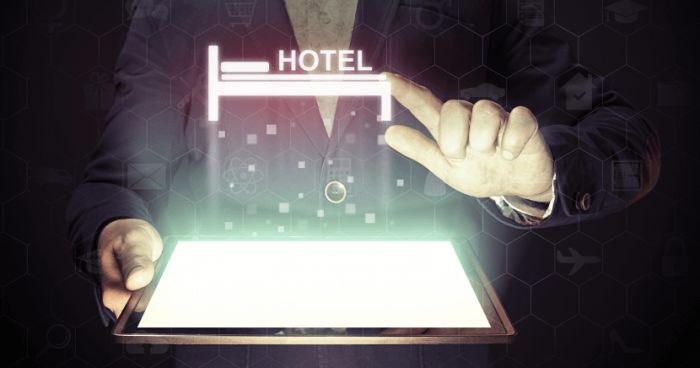
6 Hotel Technology Trends in 2024
6 Hotel Technology Trends in 2024
Introduction to Trendy Interior Design Styles in 2024
6 Guest Behavior Trends in Hotel Design in 2024
New Hotel Brands and What We Can Learn About the Growing Trends in the Hotel Business
The hospitality industry is witnessing a technological transformation to enhance guest experiences and operational efficiency. Here are six prominent hotel technology trends expected to shape 2024:
1. Smart Room Technology
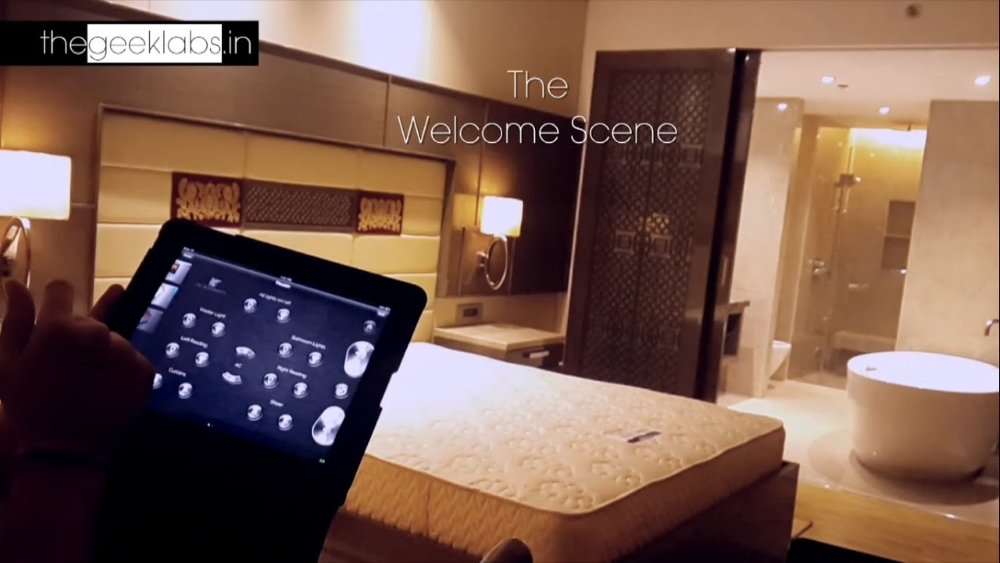
Smart room technology continues to evolve, offering guests greater control and customization over their environment.
Voice-Activated Controls: Guests can use voice commands to control lighting, temperature, and entertainment systems and request services.
IoT Devices: Integration of Internet of Things (IoT) devices to automate room settings and provide real-time maintenance alerts.
Personalization: Smart rooms that remember guest preferences for future stays.
2. Mobile Integration and Digital Services
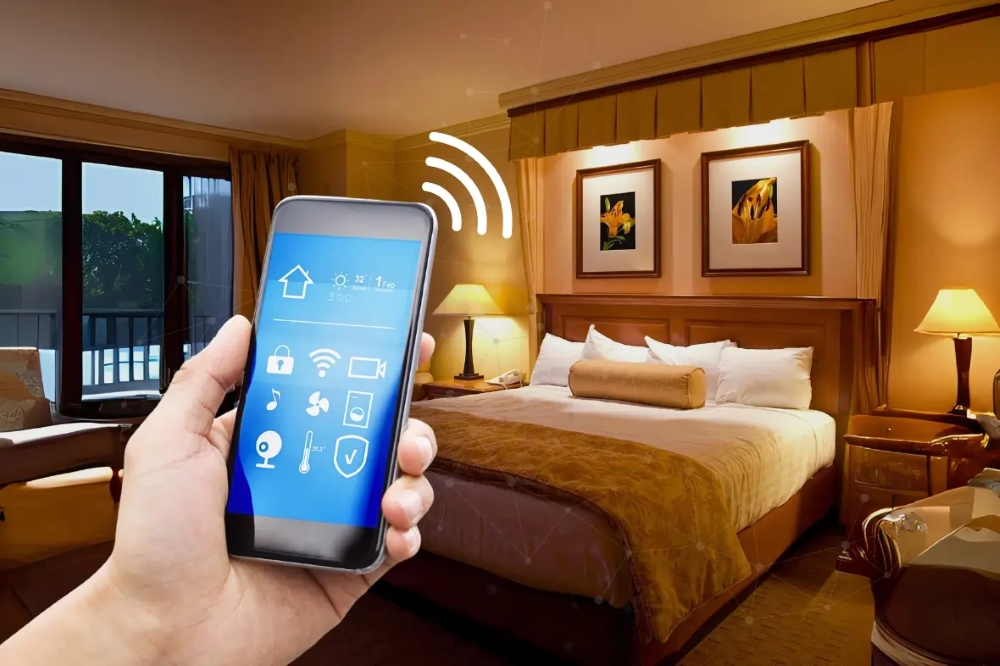
Mobile technology is central to enhancing guest convenience and streamlining operations.
Mobile Check-In/Check-Out: Contactless check-in and check-out processes through mobile apps.
Digital Room Keys: Secure digital keys accessed via smartphones, reducing the need for physical key cards.
App-Based Services: Comprehensive hotel apps offering room service, concierge services, and personalized recommendations.
3. Artificial Intelligence (AI) and Chatbots
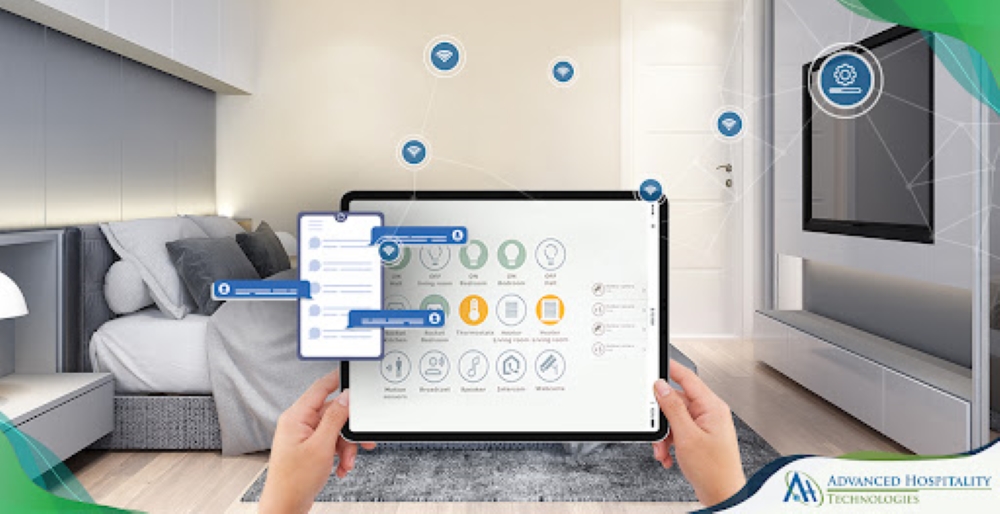
AI and chatbots are transforming guest interactions and hotel management.
AI-Powered Concierge: Virtual assistants providing 24/7 support, answering queries, and making reservations.
Predictive Analytics: AI tools analyzing guest data to offer personalized services and optimize pricing strategies.
Automated Customer Service: Chatbots handling routine inquiries, booking modifications, and check-in processes.
4. Virtual Reality (VR) and Augmented Reality (AR)
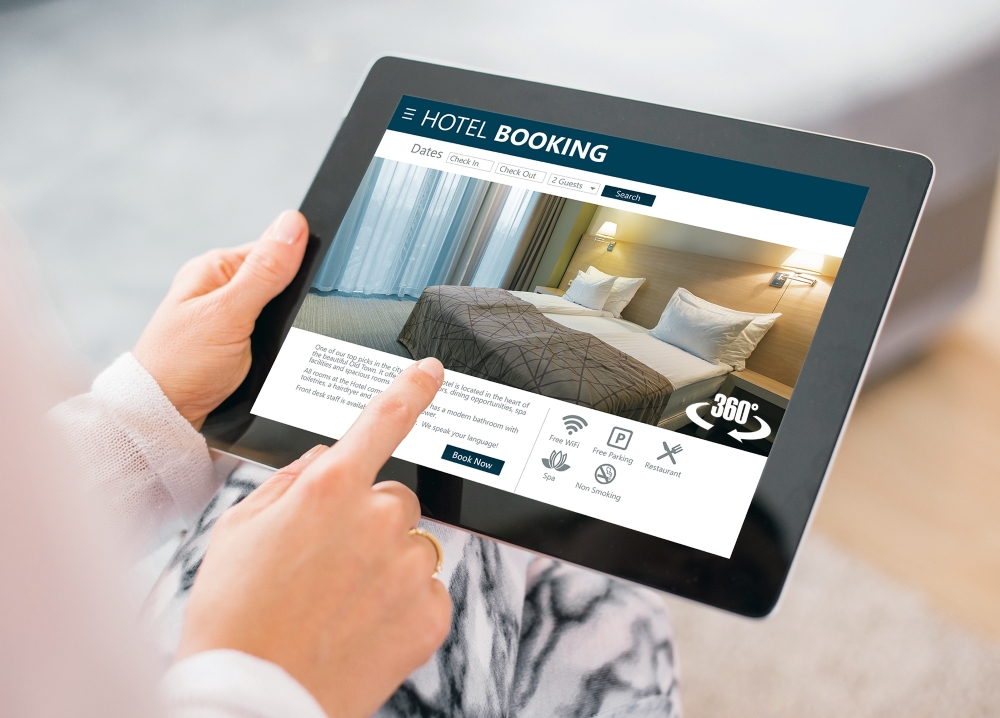
VR and AR technologies are enhancing guest experiences and marketing strategies.
Virtual Tours: Offering immersive virtual tours of hotel properties and nearby attractions.
AR Navigation: AR apps providing interactive maps and information about hotel amenities and local points of interest.
Enhanced Marketing: Using VR experiences in marketing campaigns to attract potential guests.
5. Enhanced Cybersecurity Measures

With increased reliance on digital solutions, cybersecurity has become a top priority.
Data Protection: Implementing robust data encryption and compliance with data protection regulations.
Network Security: Advanced firewalls and intrusion detection systems to protect guest and operational data.
Training Programs: Regular cybersecurity training for staff to mitigate the risk of data breaches.
6. Sustainable Technology Solutions
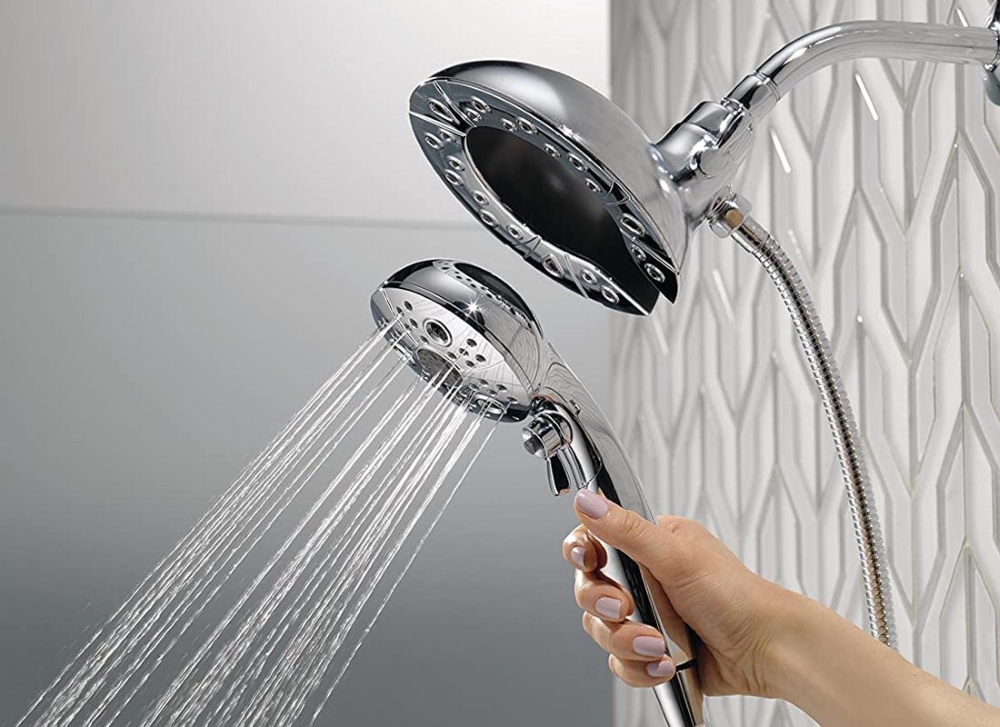
Sustainability is a key focus, with technology crucial in achieving eco-friendly operations.
Energy Management Systems: Smart systems to monitor and optimize energy usage in real time.
Water Conservation Technologies: Implementing low-flow fixtures, smart irrigation systems, and leak detection sensors.
Waste Management Solutions: Technologies to reduce waste, promote recycling, and manage resources efficiently.
Conclusion
Integrating these technology trends in hotels is set to enhance guest satisfaction, improve operational efficiency, and support sustainable practices. By staying ahead of these technological advancements, hotels can offer superior experiences and maintain a competitive edge in the industry.
Staying ahead of hotel technology trends is essential for keeping your hotel competitive. Incorporating these trends can enhance the guest experience and help you design spaces that are functional and innovative. Additionally, technology can play a key role in supporting growing hotel brands, ensuring they meet modern traveller expectations.
FAQs
1. How does smart room technology enhance guest experiences? Smart room technology offers personalized control over room settings, including lighting, temperature, and entertainment, providing a more comfortable and customized stay.
2. Why is mobile integration important for hotels? Mobile integration streamlines check-in/check-out, room access, and service requests, enhancing convenience and reducing physical contact.
3. What are the benefits of using AI and chatbots in hotels? AI and chatbots improve customer service by providing 24/7 support, personalized recommendations, and handling routine tasks, allowing staff to focus on more complex guest needs.
4. How can VR and AR be utilized in the hospitality industry? VR and AR can be used for virtual tours, interactive navigation, and immersive marketing experiences, helping guests explore the hotel and surrounding area before and during their stay.
5. What measures can hotels take to enhance cybersecurity? Hotels can enhance cybersecurity by implementing data encryption, network security protocols, and regular staff training to prevent data breaches and protect guest information.
6. How do sustainable technology solutions benefit hotels? By promoting energy efficiency, water conservation, and waste management, sustainable technology solutions help hotels reduce their environmental impact, lower operational costs, and appeal to eco-conscious guests.